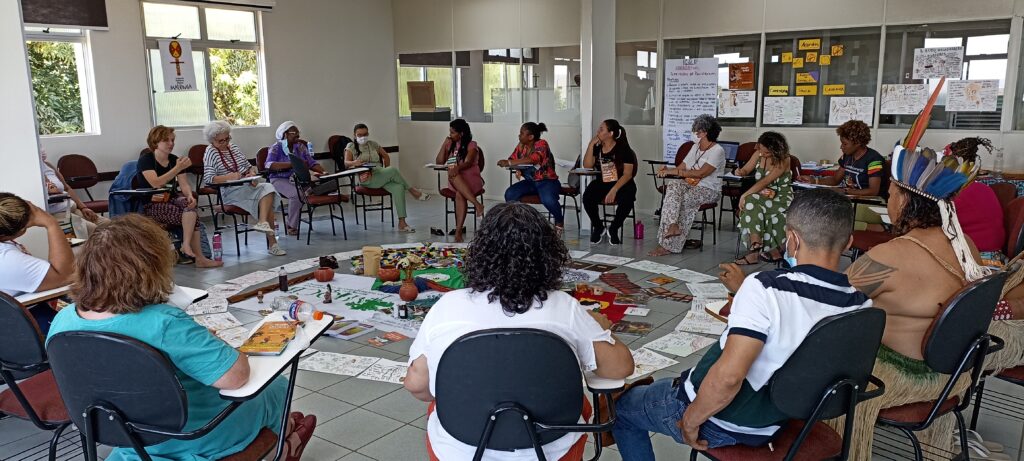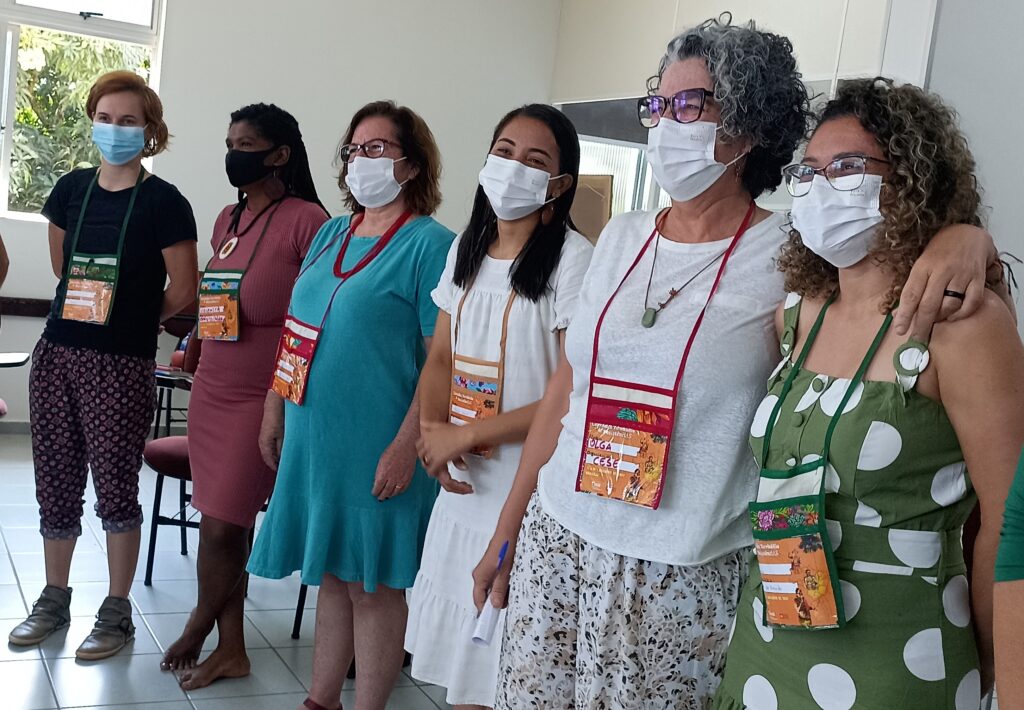
Every year, 10 small rivers are lost to water contamination. Over the last 3 years, Brazil has broken records in terms of agribusiness production, just as it has broken records in the number of people facing hunger. These are two pieces of scientific data that clearly demonstrate the impact capitalism has on the planet as a whole. Both are directly linked to the issues of Gender, Race/Ethnicity, Class and the Cerrado.
This was discussed by women who represent these peoples during the Meeting of Project Agents (MPA), held by CESE in partnership with HEKS-Eper between 11 and 13 October. The meeting debated development, the impact of agri- and water businesses, and mining on the territories; climate change; and alternative socio-economic experiences; all points that guided discussions about gender, race/ethnicity and class in relation to the territories of the Cerrado.
Over recent years, CESE has sought to expand the debate about the implications of gender and race in the experiences of the traditional peoples and communities that live in the Cerrado. The MPA provided yet another discussion designed with this objective in mind, as well as a moment to assess what has been constructed so far, to reflect on these activities and to consider the prospects for continuity in this work.
The MPA was mediated by Carmen Silva, Coordinator of the SOS Body Institute (Instituto SOS Corpo), and was principally attended by female representatives of the organizations whose projects have been supported and have taken part in workshops groups and other activities.
Analysis of the Cerrado context

The discussion about gender, race/ethnicity and class was preceded by an analysis of the context in the Cerrado; some of the women were invited to contribute to this debate. Valéria Santos from the National Campaign in Defence of the Cerrado (Campanha Nacional em Defesa do Cerrado), noted that the notion of development imposed by the Brazilian state on the Cerrado seeks to extinguish these peoples and erase the memory of a number of the traditional communities that exist there.
“… this notion is intentional, it is a political project. Today the Cerrado is one of the regions containing the most diverse peoples. This is a form of resistance, of assuming that their notion is not a truthful one. The Cerrado isn’t a single biome, it’s diverse. It’s like the fur of a jaguar,” Valéria declared.
Emília Costa, member of the Quilombola Movement of Maranhão (Movimento Quilombola do Maranhão: MOQUIBOM), demonstrated her concern about the exodus of young people from the territories, in adherence to a capitalist discourse that tries to preach to traditional communities the image of lack of productivity. She noted the importance of education in strengthening processes to reclaim territories that have been stolen by ranchers, for example.
“In this way, we teach our children from the ground we walk on. This way, we’ll have young people who feel they belong to the territory and to the struggle. Our territory won’t receive its land titles from one minute to the next. For this reason, we need to train people to continue the struggle. One day, our ancestors will leave and we need to take on their legacy,” Emília noted.
Other reports described the struggle against rights violations and conflicts in the countryside that have ended up cutting short lives, the contamination of rivers and the privatization of waters in the west of Bahia, as well as the advance of agri-business and State violence.
Gender, Race/Ethnicity, Class and Capitalism
Carmen explained how Class/Gender/Race/Ethnicity organize the system. And the system is only this dominant because it is cultural, economic, social and political at the same time. She pointed out how these criteria are used to divide the population. “They use physical or cultural characteristics in order to subjugate. It is as if the white race didn’t exist; as if white were ‘normal’ and race means black. Capitalism has appropriated this concept to dominate and exploit. Slavery was legitimized in Brazil.”
In terms of the discussion about gender, she said that the world is based on the binary notion of man/woman. “In relation to gender identity, anybody who departs from the standard notion of a man has less power.” Regarding class, she noted the existence of billionaires, the rich, the poor, the very poor – exploitation. And ethnicity is a concept in which a population’s own characteristics are used to categorize.
“Everything we have discussed so far in relation to the Cerrado fits into this development model. Capitalism is not the only system in the world. But the other systems are involved in capitalist production. This creates losses for those who really produce. Today we are disputing the impacts of development. Obviously the strong always prevail over the weak. So, the impacts are greater on the socially weak: on women, the indigenous and so forth. How can we organize ourselves to increase our power and dispute the direction of development?” she asked in conclusion.
Contributions to CESE’s work

The final session in the Meeting of Project Agents included participant assessments of the work thus far and suggestions about what could be incorporated into CESE’s work on this initiative. Suggestions included themes such as: climate change and training to understand its impacts on the lives of those in the Cerrado, communications training for young people and institutional strengthening.

